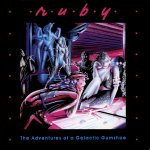Sunday, May 31, 2009
Storm Warning
"A literature that is alive does not live by yesterday's clock, nor by today's, but by tomorrow's. It is a sailor sent aloft: from the masthead he can see foundering ships, icebergs, and maelstroms still invisible from the deck.
"In a storm you must have a man aloft. We are in the midst of a storm today, and SOS signals come from every side. Only yesterday a writer could calmly stroll along the deck, clicking his Kodak; but who will want to look at landscapes and genre scenes when the world is listing at a forty-five-degree angle, the green maws are gaping, the hull is creaking? Today we can look and think only as men do in the face of death: we are about to die--and what did it all mean? How have we lived? If we could start all over, from the beginning, what would we live by? And for what? What we need in literature today are vast philosophic horizons--horizons seen from mastheads, from airplanes; we need the most ultimate, the most fearsome, the most fearless 'Why?' and 'What next?'
"What is truly alive stops before nothing and ceaselessly seeks answers to absurd, childish questions. Let the answers be wrong, let the philosophy be mistaken--errors are more valuable than truths: truth is of the machine, error is alive; truth reassures, error disturbs. And if answers be impossible of attainment, all the better! Dealing with answered questions is the privilege of brains constructed like a cow's stomach, which, as we all know, is built to digest cud.
"If there were anything fixed in nature, if there were truths, all this would, of course, be wrong. But, fortunately, all truths are erroneous. This is the very essence of the dialectical process: today's truths become errors tomorrow; there is no final number."
~Yevgeny Zamyatin, "On Literature, Revolution, Entropy, and Other Matters."
Ah, gotta love those Russians. Nobody does Revolution better... except, perhaps, the French. But I digress...
Zamyatin, along with the quote above, is referenced in Ursula K. Le Guin's book of essays, The Language of the Night (a book that I am proud to say I have loved into a state of near disintegration). He is primarily known for writing the dystopian science fiction novel We, which is credited as the forerunner of, if not the direct influence for, Orwell's 1984 and Huxley's Brave New World. I read 1984 in my teens and Brave New World in my 30s; I found them deeply disturbing. I have no doubt We offers more of the same. I have this sense of checked impulse; I am both fascinated and repulsed by the dystopic vision.
And yet, I do believe that Zamyatin is right in his assertion that Art should disturb, that it should ruffle the calm waters of complacency and question the very things we take for granted. Science Fiction does this especially well, when it is done right, and provides an answer, if not silences completely, those naysayers who don't believe genre fiction has anything to offer the world of Literature.
Zamyatin wrote those words almost 100 years ago, and they are no less true now. I am only left with more questions though. Who? Who are the ones in the mastheads today, the ones asking those "absurd childish questions"? The answer, I am certain, will be ongoing, with each new book I read. I'll try to find out for you...
97 Days til the Burn
Subscribe to:
Post Comments (Atom)




No comments:
Post a Comment